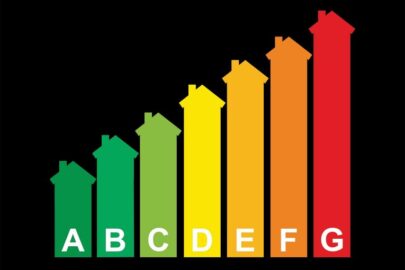As I write, speculation is mounting that the Government is on the verge of announcing landlords will now be given until 2028 to upgrade the energy efficiency of their properties.
Under the original plans, those in the PRS were going to be given until April 2025 to ensure all new tenancies carried an Energy Performance Certificate (EPC) rating of C or above and until April 2028 for existing tenancies.
The Daily Telegraph however recently reported that the deadline will be extended to 2028 for all tenancies – not a huge surprise given the original deadline allowed just two years for the upgrades. The newspaper also claims the Government is considering an overhaul of the EPC system and may even lower the proposed C rating over fears it may cause landlords to exit the market.
While the news is somewhat unexpected, it will at least offer some clarity and set the wheels in motion for the upgrades.
Reports predicting a ‘mass exodus’ of landlords due to the changes have been plentiful, but I’m not convinced this will be the case. Landlords are a resilient bunch. Given all the tax, regulatory and increased costs they have endured over the last decade, I expect some will see the proposals as an inconvenience but not enough to make them want to put the ‘For Sale’ sign up just yet.
Unlike previous legislation targeting the market, there are also potential gains to be had in the EPC measures. We are starting to see evidence energy efficient properties are commanding a premium, with Santander reporting an almost 10% uptick on properties that have been retrofitted.
There is also the obvious utility bill savings. Recent analysis from the Energy and Climate Intelligence Unit (ECIU) found all PRS homes meeting EPC C in 2025 rather than 2028 would save private renters nearly £11bn in bills by 2050. Given the cost saving, we may also start to see renters prioritise those rental properties that can offer lower bills – especially given the escalating cost of rents.
Much will also depend on what, if any, financial assistance is offered to investors to help with the cost of the upgrades. The new timeframe from the Government will not only spur on landlords to carry out the necessary upgrades but will also likely incentivise buy-to-let lenders to look at ways to encourage landlords to carry out the changes.
While the measures may not lead to an ‘exodus’ of landlords, they will undoubtedly lead to some sort of reshaping of the buy-to-let landscape. The housing market can be unpredictable at the best of times and while we may see some landlords offload less efficient properties – history tells us there is usually an opportunist investor waiting in the wings to grab a potential bargain.
Interestingly, the Government did not use its Powering Up Britain report to announce the EPC changes – perhaps over fears it may have been lost amongst the other headlines. There were however a few snippets of help announced for homeowners within the report, such as the extension of the Boiler Upgrade Scheme and the Great British Insulation Scheme, but no targeted support for landlords.
The report did note the Government would respond to the consultation on improving home energy performance through lenders and in the PRS in due course, and consult by the end of this year on how to improve the energy efficiency of owner-occupied homes.
In anticipation of the EPC changes coming for homeowners, we are currently training all of our surveyors to be not only energy assessors but also retrofit assessors, enabling them to advise homeowners and lenders on how they can improve the energy efficiency of their homes.
There is still a lot of misinformation surrounding a property’s EPC and the cost involved in improving it.We may also see a change of tact from landlords once a full energy assessment on their property has been undertaken. Once landlords delve into what they need to do, the cost may not be as high as some had originally anticipated.
As long as we don’t see rental stock fall any further – the measures should also bring some welcome improvements for those living in poorly insulated homes. It is estimated around 2.4 million privately rented homes in England currently fall below EPC band C, with almost one in four households classed as ‘non-decent’, according to the ECIU. Mouldy, damp and expensive properties have gained the landlord community a bad reputation over the past decade or so and while this might apply to some landlords, it certainly does not apply to all.
While the EPC changes may bring some temporary pain, it is hoped they will also lead to long-term gain – for both property investors and their tenants.
Simon Jackson is managing director of SDL Surveying
References:
https://www.telegraph.co.uk/politics/2023/03/30/energy-ratings-for-homes-to-be-overhauled/
https://www.gov.uk/government/publications/powering-up-britain
